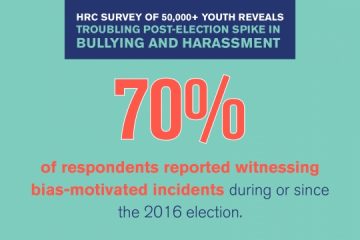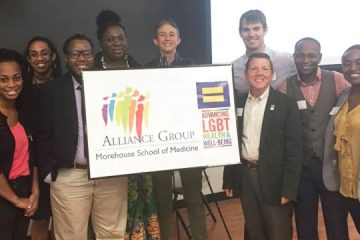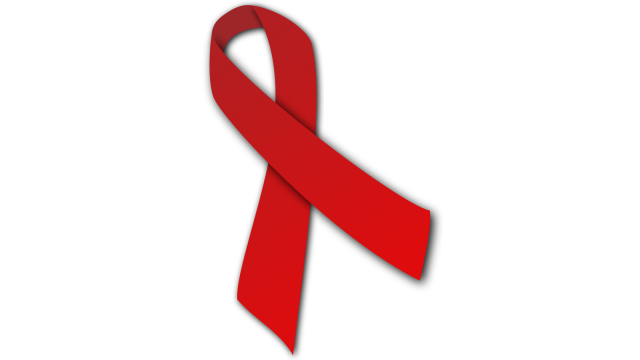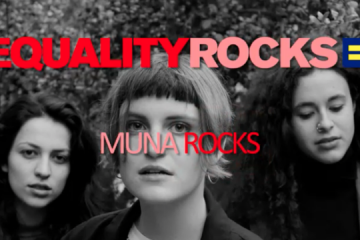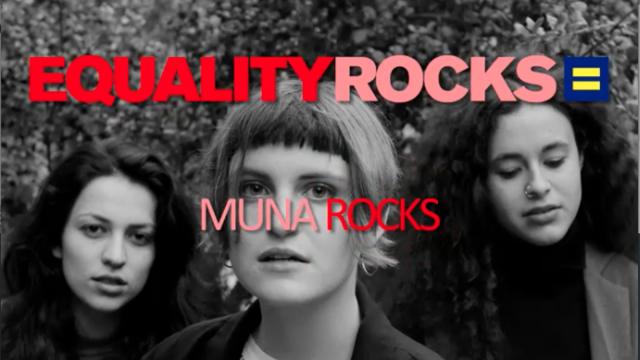New Survey of 50,000+ Young People Reveals Troubling Post-Election Spike in Bullying & Harassment

Today, HRC Foundation released the results of a groundbreaking post-election survey of more than 50,000 young people ages 13-18 revealing the deeply damaging fallout the November election has had on youth across the United States.
The online survey, believed to be the largest ever of its kind, found that 70 percent of respondents have witnessed bullying, hate messages or harassment since the election, with racial bias the most common motive cited. More than a quarter of LGBTQ youth said they have been personally bullied or harassed since Election Day — compared to 14 percent of non-LGBTQ youth — with transgender young people most frequently targeted. Additionally, Hispanic and Latinx respondents were 20 percent more likely than other youth to report having been personally bullied, with harassment targeting both immigrant and nonimmigrant communities.
“Whether the threats come in their schools or from those holding the country’s highest offices, no young person should be bullied or made to feel unsafe,” said HRC President Chad Griffin. “The alarming results of this groundbreaking survey underscore our fears about the damaging effect the recent election is having on our nation’s youth, and serve as a call to action to all of us committed to helping our young people thrive in an inclusive and supportive society.”
Vast numbers of young people also reported feeling nervous and hopeless post-election, with almost half of LGBTQ youth saying they have taken steps to hide who they are by delaying coming out, dressing differently or questioning their plans for the future. Hispanic and African American young people also reported changing their appearances and routines out of fear of harassment, and Muslim, Jewish and Hindu youth all described concealing symbols of their faith to avoid being targeted.
In responses to open-ended questions on the survey, many young people shared heart-wrenching stories of how the vicious campaign rhetoric had encouraged harassment and bullying. Wrote one Hispanic 18-year-old from Illinois, “My family and I go shopping and wash clothes at 2 a.m. to avoid seeing and hearing people’s comments.” A transgender youth from Idaho wrote that they and a Latinx friend were confronted at school by a fellow student who said, “Donald Trump is gonna deport wastes of space like you, and hopefully he does something about freaks like you too.”
Findings include:
- Seventy percent of respondents reported witnessing bullying, hate messages or harassment during or since the 2016 election. Of those, 79 percent said such behaviors have been occurring more frequently since the onset of the presidential campaign.
- Among young people who reported seeing bullying and harassment, 70 percent had witnessed incidents motivated by race or ethnicity, 63 percent had seen incidents motivated by sexual orientation, 59 percent had seen incidents motivated by immigration status, and 55 percent had witnessed incidents motivated by gender.
- Over the past 30 days, about half of transgender youth reported feeling hopeless and worthless most or all of the time, and 70 percent said that these and similar feelings have increased in the past 30 days. Thirty-six percent had been personally bullied or harassed, and 56 percent had changed their self-expression or future plans because of the election.
- Before Election Day 2016, more than half of survey respondents reported thinking about the election every day, and a third thought about it several times each week.
In one encouraging finding, despite widespread post-election fear and anxiety, young people said they are more committed than ever to supporting others who are targeted for discrimination and harassment. Fifty-seven percent said that since Election Day, they more frequently feel motivated to help people in their community.
Wrote one 15-year-old from North Carolina: “The best way for adults to reassure youth, especially minorities, is to get involved in the community and take action to make the world a better place, whether it is through volunteering at a homeless shelter, working on a campaign, or something else. Actions speak louder than words.”
Respondents were solicited through HRC’s social media channels and those of partner organizations, including Mental Health America, the National Queer Asian Pacific Islander Alliance, the Planned Parenthood Federation of America, the Southern Poverty Law Center, True Colors Fund and The Trevor Project.
To acknowledge the very real fears young people are experiencing, and help them cope with the fallout from the election, HRC is recommending five things you can do today to support LGBTQ youth. Find the list here. Read the full survey results here.
Read more
